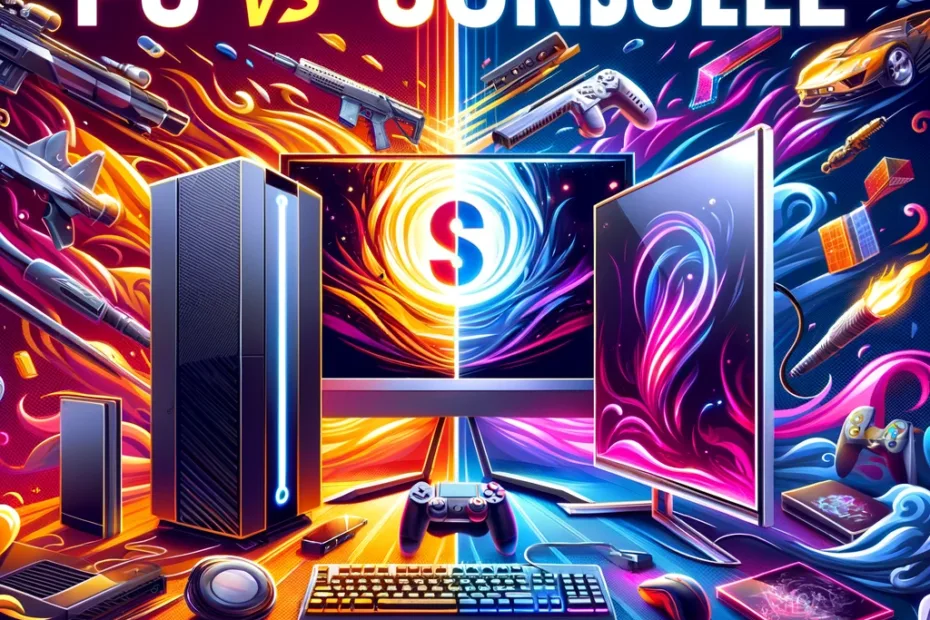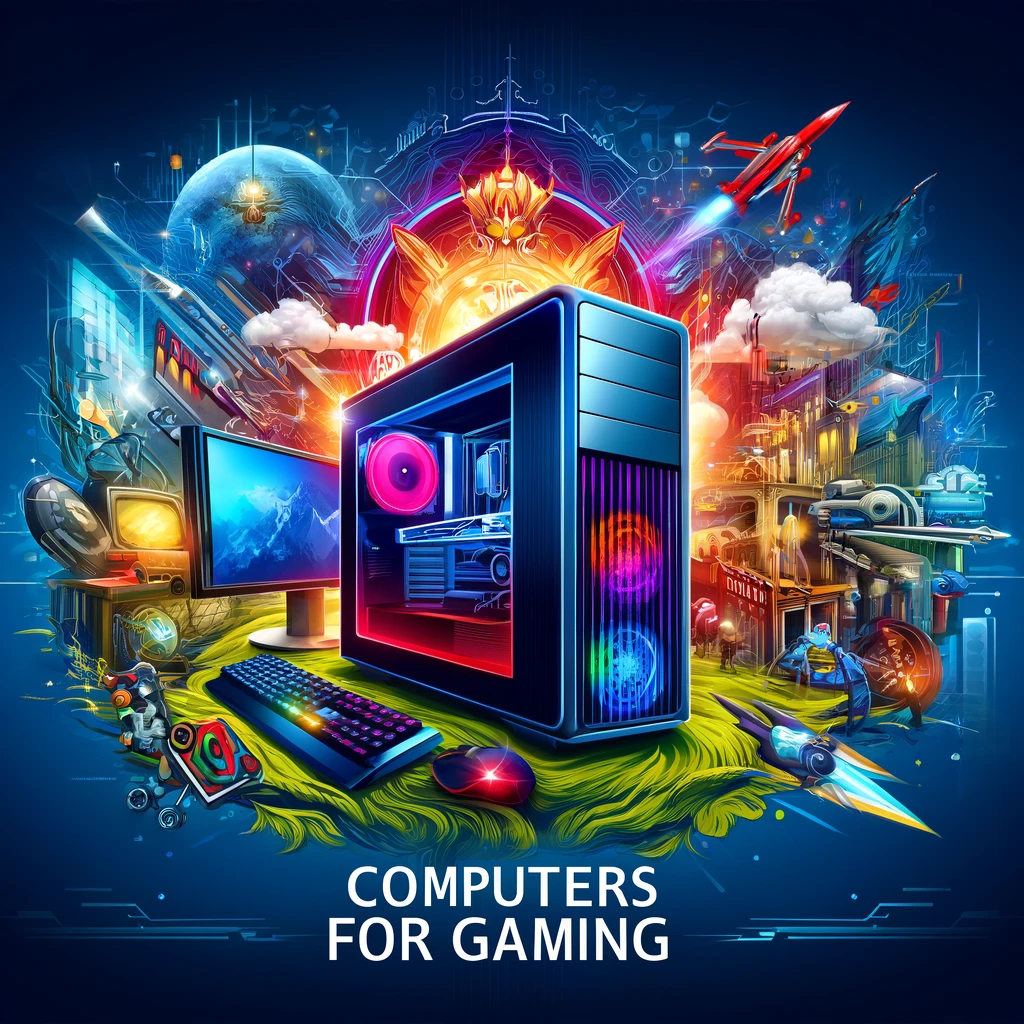Introduction
The debate between gaming on a computer and a console has been a perennial topic among enthusiasts, each platform boasting its legion of loyal supporters. This discussion isn’t just about hardware; it’s deeply rooted in personal experiences, preferences, and the kind of immersion each gamer seeks. From the high-octane performance of gaming PCs to the exclusive titles and ease of use offered by consoles, each platform presents compelling arguments. This article delves into these considerations, offering insights into the performance, game library, cost, user experience, and more, to help gamers navigate this age-old debate.
Performance and Graphics
When it comes to raw performance and graphical fidelity, high-end gaming PCs often have the upper hand. They benefit from the latest advancements in GPU technology, offering higher frame rates, superior resolution, and the ability to customize graphics settings to one’s liking. This flexibility ensures that gaming PCs can push the boundaries of visual quality, especially in demanding titles. However, the latest gaming consoles, such as the PlayStation 5 and Xbox Series X, have significantly narrowed this gap. They offer robust performance capabilities, supporting 4K resolution and high dynamic range (HDR) content, making them formidable contenders in the graphics arena.

Game Library and Exclusives
The range and diversity of available games are crucial factors in the PC versus console debate. PCs are known for their extensive library, including AAA titles, indie games, and a vast array of genres that cater to all types of gamers. Additionally, PCs offer backward compatibility and access to classic titles through various platforms. Consoles, on the other hand, often boast compelling exclusive games that are not available on any other platform. These exclusives are frequently major selling points for consoles, offering unique gaming experiences that are deeply integrated with the console’s hardware and ecosystem.

Cost and Upgradability
The initial investment in a gaming PC can be considerably higher than that of a console, especially for those seeking top-tier performance. However, PCs offer the advantage of upgradability. Components like the GPU, CPU, and RAM can be upgraded individually, extending the life of the system and ensuring it remains competitive with newer gaming technologies. Consoles offer a more fixed hardware platform, with a lower upfront cost but limited scope for upgrades. This means that to access significant hardware improvements, console gamers may need to purchase a new unit with each generational leap.

User Experience and Accessibility
Consoles are often celebrated for their plug-and-play nature, offering a streamlined and user-friendly gaming experience right out of the box. The integrated ecosystem of consoles, including their operating systems and online services, is designed to be accessible and easy to navigate for gamers of all levels. Gaming PCs, while more complex, offer a higher degree of customization and flexibility in terms of game settings, mods, and multitasking capabilities. The choice between the simplicity of consoles and the versatility of PCs often boils down to personal preference and the desired level of engagement with the gaming hardware and software.

Portability and Space Considerations
Consoles have the advantage of being compact and easy to integrate into various living spaces, from living rooms to bedrooms, often requiring minimal setup. Their portability allows gamers to easily transport the system to a friend’s house or a different room. Gaming PCs, particularly those built for high performance, can require more space due to their larger components and the need for peripheral devices. However, the rise of small form factor PCs and gaming laptops has made PC gaming more adaptable to space constraints and the need for portability.

Conclusion
The decision between a gaming PC and a console is influenced by a myriad of factors, including performance, game availability, cost, user experience, and lifestyle needs. While PCs offer unparalleled performance and customization, consoles provide ease of use, exclusive titles, and a more straightforward gaming experience. Ultimately, the choice is deeply personal, reflecting each gamer’s priorities, preferences, and the type of gaming experience they seek.
This comprehensive exploration of the PC versus console gaming debate, covering performance, game libraries, cost, user experience, and more, aims to provide gamers with the insights needed to make an informed decision that best suits their gaming style and preferences.
With a detailed examination of each aspect and a balanced perspective, this article contributes to the ongoing discussion, celebrating the diversity and passion that define the gaming community. Whether you prefer the cutting-edge performance of gaming PCs or the exclusive titles and convenience of consoles, the most important factor is the enjoyment and fulfillment you derive from your gaming experiences.





